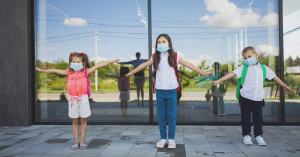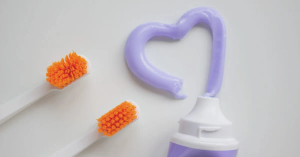Coughing is actually the body’s way of clearing irritants from the throat and lungs naturally. However, it's also something that won't go away that easily and may keep your kids awake all night.
This is where the importance of prevention that cures comes in. Yes, it is possible. By effectively managing and following some preventive measures, you can stop that cough before it even starts.
Read this article to explore some effective tips on how you can stop a cough in kids before it actually starts.
Effective Tips to Prevent Coughs in Kids
Stronger Immune System With A Healthy Diet
One of the easiest ways to prevent coughs and other respiratory issues is by including immunity boosting nutrients to your everyday diet. Vitamins A, C, and E, along with zinc, play a big role in keeping your respiratory system healthy.
After all, a strong immune system acts as your body’s shield against common viruses that cause coughs.
In fact, studies have even shown that people who consume adequate vitamin C have almost 50 percent fewer chances of catching respiratory infections compared to those who are deficient. Oranges, carrots, spinach, almonds, and pumpkin seeds are a few great sources for ensuring proper nutrient intake.
Stay Hydrated to Keep Airways Clear
Drinking enough fluids is another essential approach when it comes to keeping your throat and respiratory tract moist, thereby making it difficult for irritants to trigger a cough.
Further, hydration helps thin mucus, thus making it easier for the body to flush out the toxins. Children are recommended to drink around 5-7 cups of water per day, while adults should go for 8-10 cups. Besides, herbal teas such as honey lemon tea and chamomile tea also do wonders in providing relief from cough.
Maintain Humidity at Home
Dry air, particularly during colder months, can irritate your throat and trigger a cough. Therefore, using a humidifier can help maintain moisture in the air, thereby preventing dryness in the environment. Besides, proper humidity also plays an essential role in keeping your respiratory system comfortable and functioning well.
According to experts, the ideal indoor humidity level is between 30 and 50 percent. However, make sure to clean your humidifier regularly to prevent mold and bacteria buildup.
Avoid Common Irritants
Did you know that exposure to smoke, strong perfumes, and air pollution can irritate the throat and lungs, thus increasing the chances of coughing?
Therefore, limiting contact with airborne irritants helps reduce inflammation in your respiratory tract.
Surprisingly, according to the CDC, secondhand smoke exposure increases a child’s risk of respiratory infections by almost 40 percent.
Thus, it becomes even more important to keep indoor spaces well-ventilated and use air purifiers as often.
Practice Good Hygiene Habits
Most coughs are usually triggered by viral infections. So, preventing germs from entering your body is essential. By practicing good hygiene habits such as regularly handwashing, you can significantly reduce the chances of catching the viruses that cause coughing.
Did you know that simply by washing hands with soap, you can reduce respiratory infections by 16 percent, as per WHO?
Takeaway
Preventing a cough before it starts isn't overwhelming as it may seem. With small changes in diet and lifestyle, you can actually help prevent cough in your little ones before it even starts. At the end of the day, prevention is better than cure.








